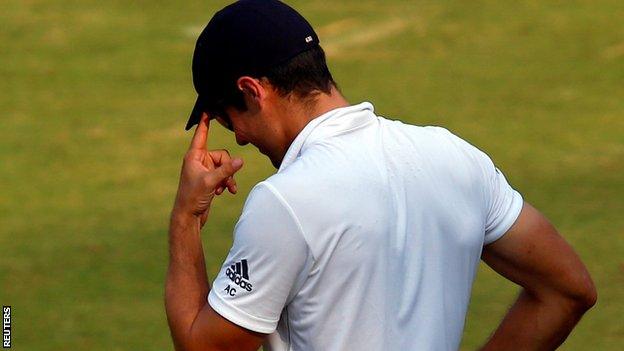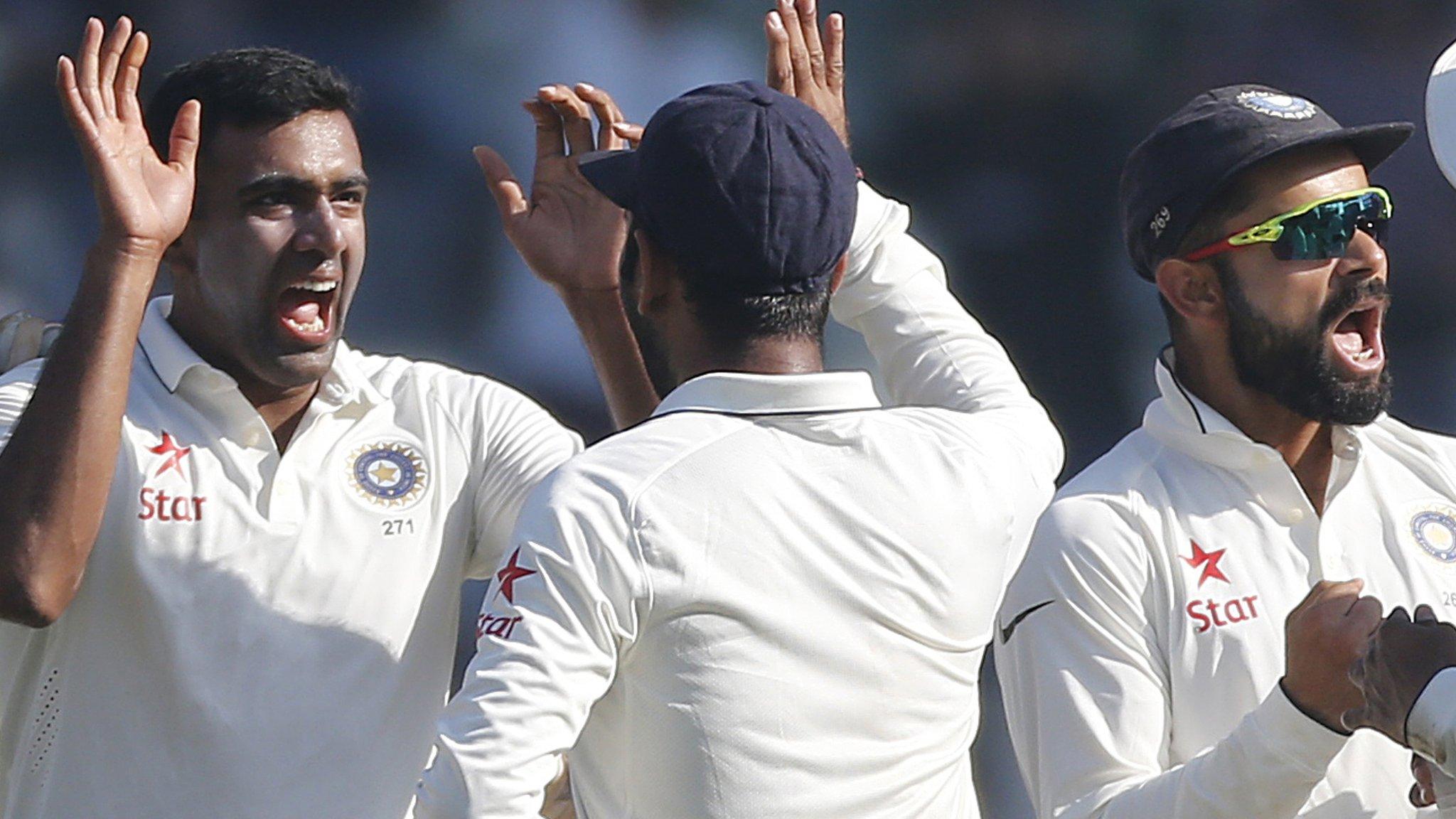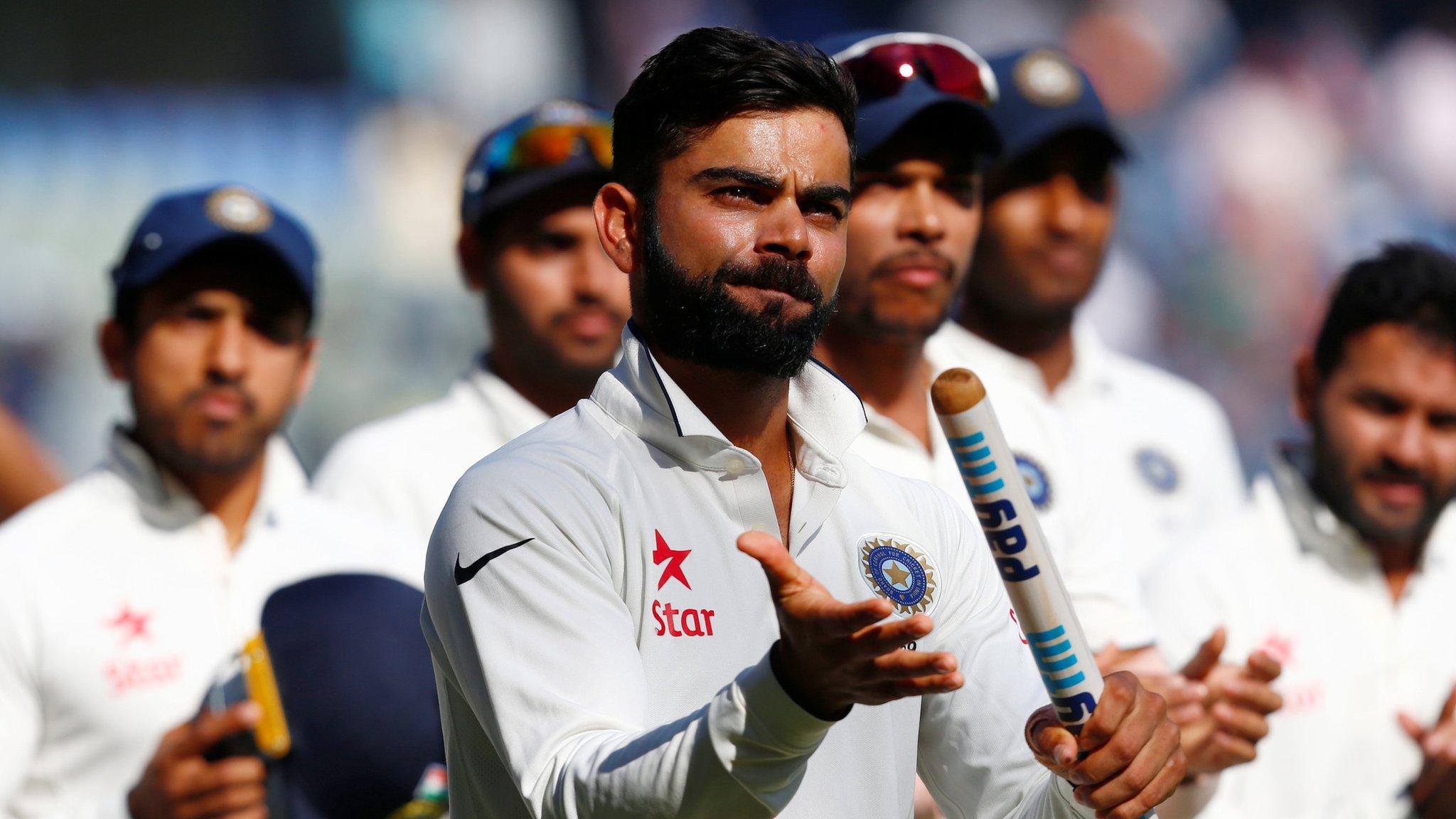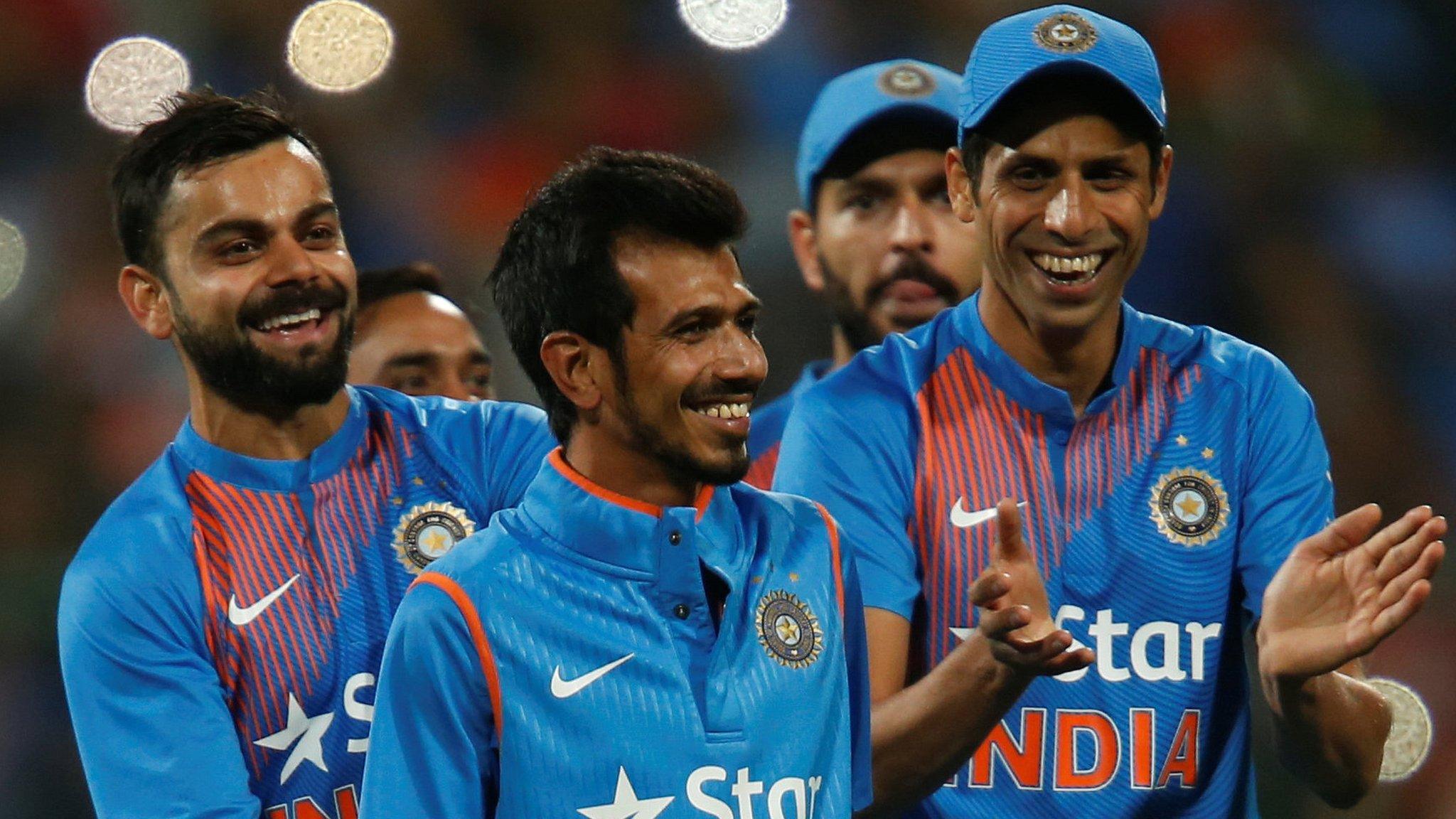India v England: Jonathan Agnew says tourists must show they are learning
- Published

England have lost four of their past five Tests in Bangladesh and India
Before England's series in India began, I did not see anyone predict that they would win it.
Most thought that India would dominate - some to the tune of a 5-0 whitewash - and that England would lose. Nothing I have seen over the course of the first four Tests has made me think any differently.
Some will want to make knee-jerk reactions in the wake of the latest defeat, an innings-and-36-run thrashing in the fourth Test, but an honest assessment is that England have lost a series they were expected to lose.
Still, that does not excuse the disappointing parts of the defeat in Mumbai.
Because England do not play in these conditions often, you want to see them learning and improving, because there is no point coming here if your game does not get better.
In this fourth Test, England repeated the same mistakes that cost them earlier in the series, failing to make the sort of first-innings score that would put India under pressure through a catalogue of poor shots.
England were 220-2 in the first innings, but were then bowled out for 400. That was a good score, but only a total in excess of 500 would have had the tourists right on top.
From Alastair Cook down, the manner in which England's batsmen fell was poor - sweeps, catches in the deep. They got trapped trying to play too positively. Positivity is fine, but not when it encroaches in to recklessness.
When you bat in India, you must nail it down. Be patient, play back some maidens and see it through even if there are fielders around the bat chirping at you. India captain Virat Kohli said himself after the match that his side did not feel that England were capable of doing this.
India v England: Missed chances in field cost us - Cook
Spinners should not take the blame
There has been talk of England making a mistake with the team that they chose, opting for four pace bowlers and only two spinners.
However, when Gareth Batty played as a third spinner in the previous Test, he only bowled 19 overs. Selection was a minimal factor in the outcome of this match.
Similarly, there has been criticism of the spinners that did play for England in Mumbai - Adil Rashid and Moeen Ali.
As far as I'm concerned, they should be exonerated. Yes, Rashid in particular did not have a great game, but he has definitely improved on this tour. We knew beforehand that India's spinners are a class above, so making the comparison now would be a little pointless.
It is those spinners, Ravichandran Ashwin especially, that help make India such a formidable side in home conditions.
The world number one side has now gone more than four years without losing a Test at home, a run of 18 matches.
Coach Anil Kumble's assertion that they have the potential to be one of the best teams of all time might be something of a leap, but they are certainly a very fine side when it comes to playing at home.
Ashwin would be dangerous wherever he plays, while Kohli has made runs in most parts of the world, with a Test century in England one of the few blank spaces on his CV.
Cook won't jump ship
England now have one final assignment on this gruelling pre-Christmas tour of seven consecutive Tests in Bangladesh and India.
Before the first Test in India, much was made of a Cook comment where he intimated that he is looking forward to relinquishing the captaincy.
He was again asked about his future following this defeat, and he said his position has not changed - he will meet with England director of cricket Andrew Strauss for a debrief in the same way he does after every series.
For his part, coach Trevor Bayliss said that the captaincy is Cook's for as long as he wants it.

Alastair Cook has lost 21 Test matches since taking on the England captaincy permanently in 2012
Even though Cook fell in uncharacteristic fashion in the first innings - charging at Ravindra Jadeja to end up stumped - I do not think that was a reflection of his attitude towards the captaincy at the moment.
Taking that a stage further, I would be surprised if he decides to leave the job at the end of this tour.
There have been other times when he has been under huge pressure, facing personal attacks on his form as a batsman, results and tactics. The summer of 2014 and the defeats by Sri Lanka at Headingley and India at Lord's was probably when the criticism was at its most fierce.
Cook, though, stuck it out. He always said it was for other people, the selectors, to relieve him of the captaincy, rather than for him to walk away. He is not someone who will easily jump ship.
Also, from the team's perspective, it is preferable for Cook to lead England on next winter's Ashes tour. The general feeling is that it would be a mistake to push Joe Root into captaining too quickly and that he would benefit from another year in the ranks.
Having said that, my experience of England captains is that they can wake up one morning and decide they have had enough.
I do not think that Cook is to blame for what has happened in India, so his immediate focus should be on ensuring his side are in the right frame of mind for the final Test in Chennai on Friday.
Maintaining morale can be incredibly difficult on a trip like this, but we do not want England to fall in a heap at the end of a long winter.
Jonathan Agnew was speaking to BBC Sport's Stephan Shemilt
- Published12 December 2016

- Published12 December 2016

- Published12 December 2016

- Published19 January 2017
